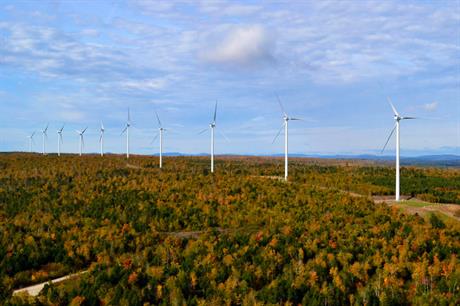The two NASDAQ-listed companies issued statements in September announcing they had "initiated a process to explore and evaluate potential strategic alternatives to maximise stockholder value, including a merger or sale of its entire business".
Terraform Power owns close to 3GW of wind and solar plants, 79% of them in the US, and the rest in Canada, Chile and the UK. The assets are an average of three years old, with remaining contract life of 15 years. Terraform Global's 917MW portfolio spans seven countries in South America, Africa and Asia, with an average of 18 years left on their power purchase contracts.
Although the yieldcos are separate entities and not in bankruptcy, SunEdison owns controlling stakes in both through its voting shares. The Terraform units say "prompt settlement" of all inter-company issues is in the best interests of all three firms.
Open to options
Peter Blackmore, Terraform's interim CEO, says the company is open to options ranging from an all-out sale of equity interests to unspecified alternative structures, although the former may be preferable.
"Selling the whole company could allow TerraForm to negotiate a sale price determined by each asset's modelled buy-out value, as opposed to stock price," said Dan Shurey, a senior associate at Bloomberg New Energy Finance. "This could be advantageous to TerraForm if they believe their stock price is not an accurate reflection of the underlying portfolio's value."
The nature of the buyer will have a significant impact on how Terraform Power looks and operates, Shurey added. "If the portfolio is picked up by a large developer or utility, it could continue to be a yieldco instrument for future acquisitions. If it is picked up by an institutional investor, it may stay a static portfolio of operating assets," he said. "Either way, a disassociation from the SunEdison bankruptcy will ultimately benefit the company."
Shurey expects most of the interest in Terraform will come from financial investors. "Developers and utilities are focusing their capital on developing pipeline projects — making the most of the tax credits before they expire," says Shurey.
Whether Terraform's sale process leads to a deal depends on whether the company can extract the value it thinks it deserves. In their recent statements, both yieldcos said they are also taking steps to operate as independent companies "without a new sponsor, if that should become necessary in the short or long term".
A potential risk for buyers is whether existing power purchase agreements (PPAs) for Terraform assets are invalidated by an ownership change, says Shurey. "Given the continued suppression of wholesale power prices in the last few years across many US power markets, an opportunity to escape or renegotiate a PPA contract could be tempting for some offtakers."

.png)


.png)










